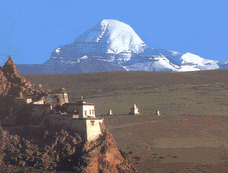Solutions (by Doctor-la and others attending) from a local level for Tibetans in established and well functioning communities in the USA and other places: http://www.tibetanhealingfund.org/index.php Tibetan Healing Fund provides teacher training and improved access to quality education as a way to enhance the livelihood of individuals and the community. Children's Fund Tibetan Healing Fund improves the basic health of women and children by providing public health education and increased access to quality and essential health services. Tibetan Maternal and Child Health Tibetan Heritage Primer Textbooks
Improve Access to Quality Education
Children’ s Fund
Bilingual Teacher Training
School Improvement Projects
Tibetan Natural Birth & Health Training Center
Maternal & Child Health Education Handbooks
Community Health Assessment
Community & Family Health Education and Outreach
Community Midwife Training
Tibetan Maternal Health System- Integrative System of Tibetan and Western Medicine
Friday
Tibet Healing Fund (hosted in Portland, OR recently)
Thursday
THE INTERNATIONAL COUNCIL OF THIRTEEN INDIGENOUS GRANDMOTHERS
Aama Bombo | Buddhi Maya Lama, who is also known as Aama Bombo (Mother Shaman), was born in the remote village of Melong in the Eastern part of the Bagmati Zone, Nepal, 65 years ago. Her father was a renowned shaman in the Nepalese Tamang tradition. Aama became a shaman in spite of the Tamang tradition that women are not supposed to practice shamanism. In the early days, her father restricted her in every way from practicing shamanism. However, when her father died at the age of eighty, his spirits and other gods and spirits started visiting and teaching her to be a shaman, against the prevailing cultural values of Tamang society. Today, Aama has achieved great renown in Nepal. She treats around 100 patients every morning at her house in Boudhnath, near Kathmandu. Patients come to visit her from around the country, as well as from India and |
Tsering Dolma Gyaltong — Asia I’d like to talk about problems in the world and what the sources of these problems are. I am Tibetan, so I will speak about the situation in Tibet, which affects all of us. Tibetans took very good care of the land, but now it is becoming a place where radioactive waste from products all over the world are being buried. It is a danger for everyone. Tsering Dolma was born in Tibet in 1929. Because of the Communist invasion of Tibet, she escaped along with her family from Tibet in 1958 to India. In 1972, she and her family (four children) came to Canada as refugees. She returned to India and became one of the founding members who revived the Tibetan Women’s Association (TWA).During the next ten years, she served as an executive member of TWA and established over 30 branch offices worldwide. In 1995, Tsering Dolma attended the Fourth World Women’s Conference held in Beijing, China. She faced many threats and dangers as she along with others openly criticized the Chinese government and its treatment of the Tibetan people and especially Tibetan women. She now resides in Toronto and remains as an advisor to the TWA. | Tsering Dolma Gyaltong |
Wednesday
Across the Tibetan Plateau: Ecosystems, Wildlife, and Conservation
by Robert L. Fleming, Liu Wulin, Dorje Tsering
Synopsis
Remarkable photographs celebrate the wild places and the exquisite animals of the country called "the roof of the world."Here is the most comprehensive photography to date of a little-known and seldom-visited land whose area equals western Europe. The beauty and diversity of Tibet is staggering: from Mount Everest to the world's deepest gorge, from tropical jungles to arctic-like tundra, from trees twenty feet in diameter to vast herds and solitary specimens of some of the least-known animals on the planet. Certain photographs, such as those of a newborn Tibetan antelope or the elusive red ghoral, are among the first ever taken of these subjects.The book brings American, Tibetan, and Chinese scholarship to bear on the natural history of Tibet, and it also describes an extraordinary conservation accomplishment that has gone virtually unnoticed by the outside world. Where else has 40 percent of the land been set aside in nature preserves in twenty years? As a result of this effort, the animals and landscapes shown here will be saved for future generations. Color illustrations throughout.
Biography
Robert L. Fleming Jr. is professor of equity and empowerment at Future Generations and a leading Himalayan natural historian. Dorje Tsering is a scholar and the senior leader of the Tibet Autonomous Region Department of Science and Technology. Liu Wulin grew up in Tibet and has been conducting research and fieldwork there for twenty years.
Publisher: W W Norton & Co Inc
Pub. Date: October 2007
ISBN-13: 9780393061178
120pp

